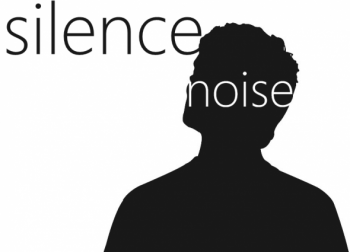Serendip is an independent site partnering with faculty at multiple colleges and universities around the world. Happy exploring!
Fdaniel's blog

Final Web Extension - Abuse can stem from Love
…See children as the property of parents to do with as they will, Adult violence against children is a norm in our society. Problematically, for the most part feminist thinkers have never wanted to call attention to the reality that women are often the primary culprits in everyday violence against children simply because they are the primary parental caregivers. Hooks

Teach In : Categories & Labels may not always be bad
Project Notes
15 - 20 minutes
- Write name of each (good) and (bad)
(Prepare body notes beforehand)
1) Bring in slips of paper and post it notes. (Ari) and double sided tape (Faith)
2) Write a category that you’re comfortable in. It can be one that you’ve given yourself or one that was chosen for you (put it on the back). And one that you’re not comfortable with (put it on the front).
3) Ask people to write what they’re comfortable with and then we’re going to take those categories and switch them around. We’ll ask people if they’re comfortable with their new given categories and we’ll ask them to share their thoughts.
4) Ask people if they’re comfortable with their new given labels.
5) Ask people if they’ve ever publicly denounced a label that they’ve been given and ask if they’ve ever felt like they’ve been given a label that doesn’t represent them at all.
6) Now do what you want with this category that we’ve given you. You can crumble it up, display proudly, put it behind you, put it in front of you, whatever.

Unbinding Parenting (Economics)
I am really intrigued by this idea of "unbinding" things. It allows everyone to trully think critially about everything in a new light. It allows me to pose new questions and form new ideas. When I first began thinking about parenting unbound I used Daddy Day Care the movie as an example/an example to get me thinking about what it meant to "unbind" a concept. I decided to dig deeper into that idea using Daddy Day Care as an example:
Parenting Unbound (economics)
In our society we have encouraged women to stay at home while men work. Are women staying at home because they truly are the best-fit parent to do so or is it solely because of their gender? Through a parenting unbound lens we are able to look past a woman and a man and think critically about roles imparted on both genders. Women shouldn’t stay at home solely because they are mothers but rather because it’s the most economically sensible decision. If a man stays home with his child it shouldn’t be frowned upon but rather encouraged if it is the most sensible decision. We need to encourage women to do more than be house wives but to begin careers and encourage men to put their families first. Due to the fact that we have been so fixated on gender and sex when it comes to parenting, we judge and sneer at households that aren’t necessarily “conventional.” Thus, in order to discontinue the seeds of patriarchy we must begin to reform the dynamics of parenting.

Web Event 3: Unbinding Parenting
Is it possible to view parenting without a mommy and daddy but rather two loving parents or one loving parent that refuses to impart sexist ideals onto their children? Some may say it’s impossible but I force you to take a step back and think critically about parenting in a new light that doesn’t ignore gender and sex when it comes to parenting but not make it our main focus. Parenting Unbound attempts to do so. Parenting Unbound focuses on not just the rights of women and gender expectations but looking at the bigger picture that comes along with parenting. It strips parenting of labels and attempts to view parenting in a pragmatic way that isn’t a battle between the sexes but rather using parenting as a catalyst to begin the stages of ending patriarchy. The patriarchy has affected parenting styles and the way children are viewed in our society; as property. If we begin to start viewing parenting differently, not as a job for one gender over the other but a learning experience with pure and genuine love we can slowly but surely end sexism and the patriarchy that is still very present in our society today. Parenting Unbound forces us to strip parenting of norms and expectations and for every aspect permanently ask: how can parenting be different or critiqued if we look past there being a mother and father role but rather two loving parents providing support and guidance?

Feminism is for EVERYONE
Bell Hook's book, Feminism is for Everyone is one of the best books I've read so far. She attempts to give the readers more then one perspective on a topic and applies this thinking to many important topics around feminism. This novel may be another example of "feminism unbound." Hook's attempts to permanently question what is feminism past gender and sex? She broadens the definition of who exactly feminism is protecting and focuses on eliminating the patriarchy instead of focusing on small unrealistic goals. This book has inspired the topic for my next web-event that will be analyzing parenting through a "feminism unbound lens." I would be questioning how parenting would be if it was"unbound."

Daddy Day Care (Feminism Unbound)
After the class on Thursday I’ve been trying to understand "feminism unbound" and applying it to my everyday life. From my understanding “feminism unbound” views feminism without it being attached to a goal. I tried to watch this movie through a "feminism unbound" lens and realized that it may be an example of "feminism unbound." Daddy Day Care is one of my favorite childhood movies. The little children making a mess and the friendly competition between the head of the private school and Eddy Murphy always amused me. The idea of child caring is usually the job of the mother.  She stays home, takes care of the children and makes sure the house is kept tidy. In this movie the roles are reversed and men are taking on the role of being nurturing and taking care of the children. They are criticized for this and called losers repeatedly throughout the movie. Their combatting the stereotype that men should only be the "bread winners." They’re also taking away that anxiety about men being harmful to children. The main character Eddie Murphy is now the caregiver while his wife, a lawyer, is working and paying for the bills. Usually in society today this couple would be criticized. The woman in this situation would be judged for allowing her husband to not go out and get a "real job." Or she'll be judged for not playing her role as the nurturing loving parent.
She stays home, takes care of the children and makes sure the house is kept tidy. In this movie the roles are reversed and men are taking on the role of being nurturing and taking care of the children. They are criticized for this and called losers repeatedly throughout the movie. Their combatting the stereotype that men should only be the "bread winners." They’re also taking away that anxiety about men being harmful to children. The main character Eddie Murphy is now the caregiver while his wife, a lawyer, is working and paying for the bills. Usually in society today this couple would be criticized. The woman in this situation would be judged for allowing her husband to not go out and get a "real job." Or she'll be judged for not playing her role as the nurturing loving parent.

Lorde is winning!
After hearing Lorde's point of view on silence I completely agree with her. If we remain silent than we will never be able to connect with others and our shared experiences WE will loose the power to have an opinion and express what we think is right and what’s wrong. If we stay silent no one will ever know what we think or what’s important to us. The power of speaking is being able to pick what you say and own it. One can either limit themselves or be as open as they want. But if one doesn't speak then they loose that power to choose what’s being spoken. Instead of others criticizing their speech we’ll just criticize their silence.
“I have come to believe that is what’s more important must be spoken even at the risk that it is misunderstood or abused. Speaking profits me beyond any other effect” – Lorde

Hard out here for who?
Lilly Allen’s new music video Hard Out Here has gotten a lot of buzz in the media. After watching the video very closely and then reading the lyrics I’ve been debating with myself whether or not this video is feminist or not. The message that Lilly is trying to give off in the video is extremely powerful. She is encouraging women to be independent and get through barriers that are set in front of them solely because of their gender. She’s also touching on the double standard presented to in society. All those points she’s tying to touch on are powerful but who is she speaking for? As she states in the beginning of the video “Don't need to shake my ass for you/cause I’ve got a brain” but she has 5-8 other women shaking their ass and touching their crotch. They’re all half naked while she’s fully clothed. She’s continually referring to women as “bitchs” in her video. We can’t possibly expect men to treat us any differently if we are treating ourselves this way. How can one combat this negative stereotype about women being objects if in the video women are objects. Did she really need to zoom into the butts and show women hyper sexualized to prove a point? Have we gotten this bad in society that we now need to have women half naked to listen? This video doesn't just make me question the white supremacy but feminism it self. Who is feminism fighting for? White women? Women of color? Both?

Silence is loud
When there’s a crowd of people yelling and screaming the only person we seem to focus on past the yelling and screaming is the one that’s silent. We wonder how they’re processing what’s going on or what there thinking. We zone into there thoughts and try to figure out there feelings. They may be the quiet one but their silence is what draws attention. In this case Eva was subjected to sexual abuse and past her hurt and pain all I can focus on is her silence and what that means. Do es it mean pain, anger, or sadness... The possibilities are endless. The silence screams attention to me and makes me again want to figure out what’s going on in her mind. However, I struggle within myself to understand whether her silence was actually a positive or negative thing. It seems as though her silence is what dug her in a deeper and deeper hole. She wouldn’t defend herself or share her feelings. In Eva's case silence may not have been the most empowering, privileged decision but rather the most damaging one.
es it mean pain, anger, or sadness... The possibilities are endless. The silence screams attention to me and makes me again want to figure out what’s going on in her mind. However, I struggle within myself to understand whether her silence was actually a positive or negative thing. It seems as though her silence is what dug her in a deeper and deeper hole. She wouldn’t defend herself or share her feelings. In Eva's case silence may not have been the most empowering, privileged decision but rather the most damaging one.




